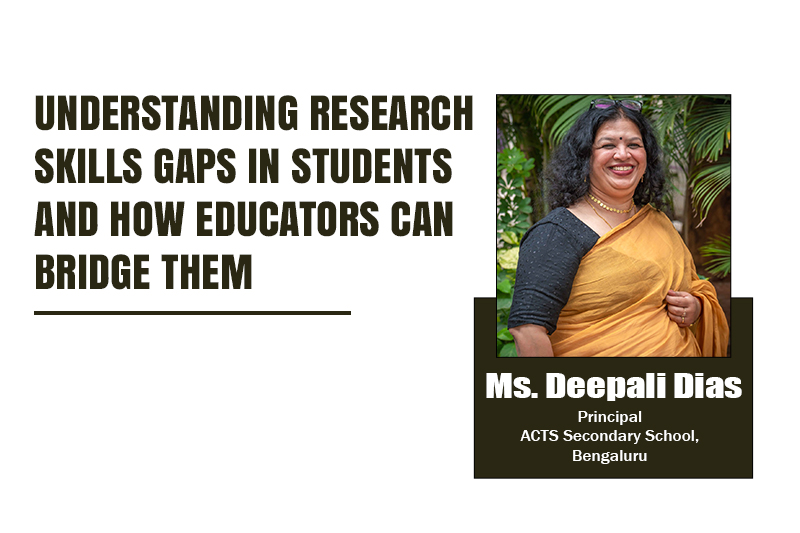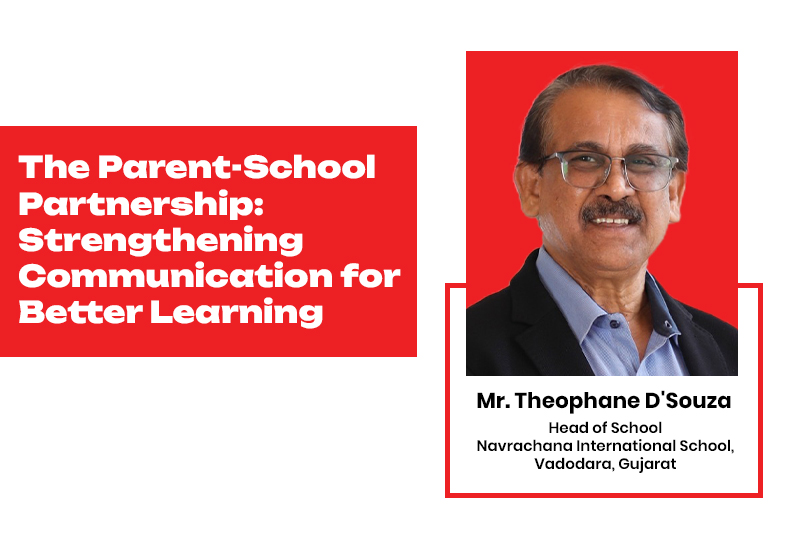Dr. John Abraham, Amber Valley Residential School: Reimagining Student Wellbeing & Neurodiversity
“Reimagining student wellbeing means honouring traditional wisdom while embracing innovation. By recognizing mental health and neurodiversity not as barriers but as essential parts of the human experience, we can create inclusive learning environments that nurture every student’s potential and redefine the future of education.”
In an era defined by constant connectivity and escalating academic pressure, student mental health is facing a silent but pervasive crisis. From toddlers in kindergarten to adolescents on the cusp of adulthood, young learners face challenges far beyond textbooks and tests. Anxiety, depression, ADHD, and other neurodiverse conditions are becoming increasingly common, exacerbated by fast-paced lifestyles, digital overload, competitive environments, and insufficient emotional support.
Dr. John Abraham, Principal of Amber Valley Residential School and a seasoned educator with over two decades of experience, believes it is time for a fundamental shift in how we approach student wellbeing in education.
A Generation Under Pressure
Children today live lives that are often scheduled to the minute—from early morning tuition to evening extracurriculars—with little time left for rest, reflection, or recreation. Social media adds another layer of pressure, magnifying peer comparison and fostering unrealistic expectations. For many students, school becomes a source of stress rather than a means of growth.
Despite growing awareness, the mainstream educational model remains rigid and standardized. Uniform assessments, performance-based recognition, and fixed curricula leave little room for inclusive education or diversity in learning styles and emotional needs. For neurodiverse students—those with autism, ADHD, dyslexia, and similar conditions—this lack of flexibility can be not only alienating but harmful.
Dr. Abraham, who has served as academic supervisor, housemaster, and Head of Department, has seen the toll this system can take.
“Our children are under immense psychological pressure. We focus so much on academic excellence that we often neglect the emotional and mental scaffolding they need to succeed.”
The Boarding School Advantage—When Done Right
As principal of Amber Valley Residential School, Dr. John Abraham sees the potential of boarding schools in India to offer a powerful alternative to the often fragmented routines of traditional day schooling. Unlike hurried urban schedules, residential campuses can provide a stable, consistent, and nurturing environment for holistic student development.
“Residential schools have the potential to become sanctuaries—where community living fosters empathy, routine brings emotional stability, and a strong mentor presence ensures that no student slips through the cracks.”
With trained pastoral care teams, wellness counsellors, and a close-knit peer community, Amber Valley proactively addresses students' emotional needs. More importantly, it provides a stress-free and reflective pace of life—a stark contrast to today’s overstimulated academic culture.
The Wisdom of the Past: Learning from the Gurukul
Many elements of Dr. Abraham’s approach are inspired by the Gurukul model of education—an ancient Indian system in which students lived and learned under the guidance of a guru in a holistic, nature-integrated environment. Unlike today’s competitive model, the Gurukul was rooted in self-discipline, emotional awareness, and internal growth.
Education in the Gurukul system wasn’t just academic—it was deeply human. Yoga, meditation, and time in nature were part of the daily rhythm. Students learned how to live mindfully, with resilience and purpose.
“The Gurukul didn’t just teach students how to think—it taught them how to live. It addressed the whole child—mind, body, and spirit. In many ways, it was far ahead of its time,” notes Dr. Abraham.
Modern educational innovation in India can learn from this time-tested approach—one that prioritizes mental, emotional, and spiritual development alongside intellectual rigor.
A Vision for the Future: Integrating Tradition and Innovation
Dr. Abraham’s educational philosophy isn’t about choosing between the ancient and the modern. Instead, he advocates for their thoughtful integration to build truly inclusive, emotionally intelligent, and future-ready schools.
Here are the foundational shifts he envisions:
- Teacher Training in Emotional Intelligence
Educators must support emotional resilience and cognitive growth. Skills like empathy, mental health awareness, and active listening must become core competencies.
- Flexible Curriculum Design
Moving beyond rigid syllabi to adaptive, interdisciplinary, and project-based learning that embraces school neurodiversity.
- Student-Centric Environments
Classrooms should be sensory-sensitive and nature-connected, designed to promote calm, focus, and reflection.
- Emphasis on Community
Reinforce emotional connection, collaboration, and mutual respect over competition and isolation.
- Integrated Wellness Practices
Social-emotional learning, yoga, and meditation should be part of daily routines—not as extracurriculars, but as essentials for mental and emotional wellness.
Through this blend of timeless values and modern needs, Dr. John Abraham envisions schools where every student feels seen, heard, and supported—regardless of learning style or neurological profile.
Toward an Inclusive Educational Paradigm
Dr. Abraham’s call to reimagine student mental health and inclusive education is both timely and urgent. It encourages educators to transcend outdated definitions of academic success and focus instead on nurturing balanced, empathetic, and resilient human beings.
“At Amber Valley Residential School, we strive to practice these ideals. We want our students not just to pass exams, but to grow in self-awareness, empathy, and strength of character.”
Ultimately, this vision is about empowerment. By creating emotionally intelligent, inclusive, and value-driven environments, schools can help students thrive—not just as scholars, but as thoughtful, grounded, and compassionate individuals.
“Education must serve the whole child,” says Dr. Abraham. “When we support the mind and spirit alongside the intellect, we are not just teaching children to succeed—we teach them to live well.”
Want more thought-provoking articles like this? Check out EducationToday – where education meets innovation.






